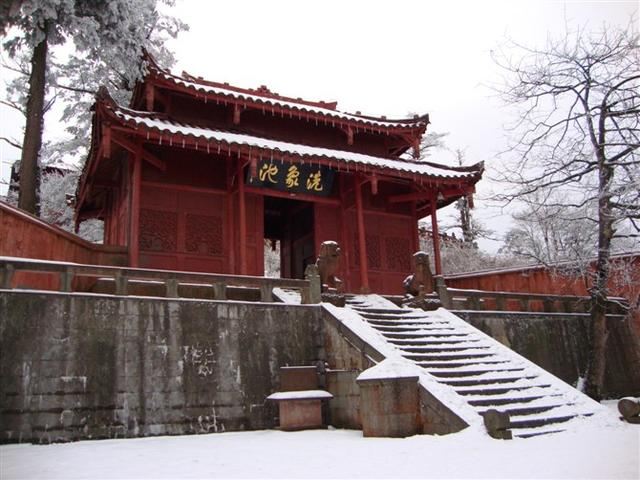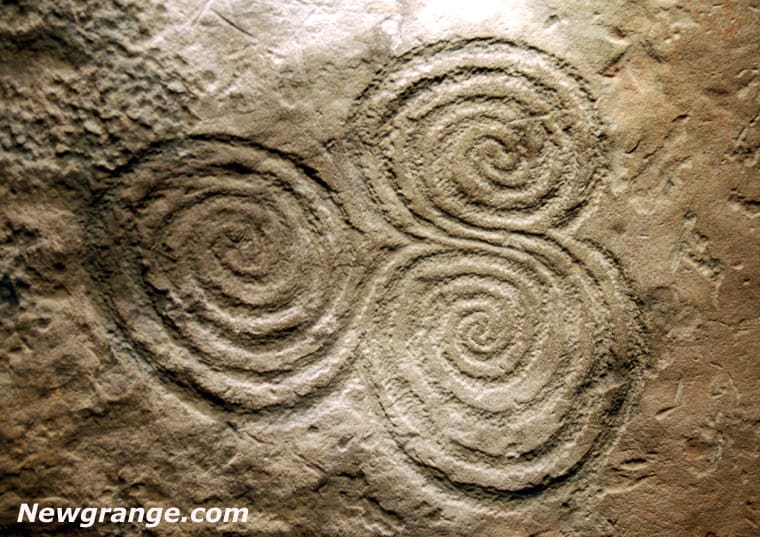
Because It’s There
When Edmund Hillary was asked why in the world he wanted to climb Everest, he famously replied: Because it’s there. I love this answer—and not only because it skillfully off-hands the journalist who asked the question and who was probably expressing his own incredulity or even antipathy to Hillary’s expedition. I love this answer because it’s irrefutable: Everest is there. Hillary probably had a complicated web of motivation, he may not even have known why he was climbing Everest—but his answer communicates to me that he knew this much: having committed himself and begun to climb, the only thing that mattered, the only real thing, was the fact that he was climbing, in the midst of whatever awful weather conditions and complicated personal feelings he encountered. Climbing the mountain was his only reality…
A couple of weeks ago, while the summer sesshin was in progress, I gave a dharma talk, and I took for my text Yun-men’s ‘Every Day is a Good Day.’ I was trying to address a feeling of sadness over not attending sesshin in person, and in the talk, I asked the following question (of myself as well as of the sangha), Do you think that there is before sesshin, during sesshin, after sesshin? And I concluded, There is only Every Day is a Good Day. And now I find, in the wake of the online sesshin last weekend, that my words have come back around to bite me. My experience of this last sesshin was that each of these periods—before, during, and after sesshin—had a different character, and I find myself trying to figure out why or how. Needless to say, there is a value judgment involved: good and bad invariably creep in, no matter how I try to avoid them…
Before sesshin, the practice seemed to come to me of its own accord, during sesshin—it hit me over the head, and after sesshin, well…now it seems like I am seeking it with empty hands, or seeking it with a lamp in broad daylight.
I had a number of ‘experiences’ on sesshin. Leading practice, I forgot the words of the Four Bodhisattva Vows (which I recite every day), and I was very upset about it, much more upset than the ‘mistake’ would seem to warrant. What’s with that? I wondered. Later in the sesshin I decided that this mistake was really an opportunity, and I settled down to sit with it. Later still, I found myself creating a scene for a fictional story I’m writing—in the midst of zazen. You can’t do that on sesshin, I said to myself. But immediately I realized that I was doing it and that it was of great importance, of supreme importance, even, simply because, like Everest for Hillary, it was there.
So I had these experiences on sesshin, and in being curious about them (in the way of ‘not knowing’ rather than of ‘wondering’), I noticed that they both changed sign, as it were. I made a mistake, then it was an opportunity; I was wasting my time thinking about my creative work, then I realized its importance. And ultimately, as I continued to sit and to settle into my practice, these experiences came to have no sign at all, neither good, bad, nor indifferent, but simply to be there. I had the opportunity to know them, not merely in the sense of making a story about them, but simply with the knowledge of not knowing, which is most intimate.
And at the same time I came away with a story that explains why I was so upset about being unable to recite the 4 BV’s and even how this experience was related to the content of the piece of fiction that I found myself elaborating during one of the periods of zazen. I like my explanation very much: I think it’s profound, insightful, and maybe even useful. But I’m not going to tell you the story. Because in our way of practice what matters is to encounter what is here, just as Hillary encountered Everest. To encounter everything that arises, even if it is only a story…
Zen Master Seung Sahn, one of our Korean ancestors, used to say, ‘Must be more stupid!’ This always used to annoy me when I heard it, all the more so because the Kwan Um school did not make use of any of the wonderful texts that we have excerpted in our sutra book, which are not merely intended to give us intellectual pleasure, but to serve as guideposts to the Way, as fingers pointing. But really, I knew what he meant. ‘Must be more stupid’ means the truth of eye, ear, nose, tongue, body, mind that I receive when I am paying attention, it is the practice of not-knowing, the knowledge of not-knowing, the encounter with how-it-is, with what-is-here.
I prefer the word ‘realization’ to ‘enlightenment.’ A realization can pertain to any and every experience whereas the common use of the word enlightenment ties it to a special state or experience that is possible only in the context of a practice or a spiritual tradition; it doesn’t have to be limited to such a state, of course, but it carries that connotation for many people. To realize something—is to make it real, just as Hillary made Everest real for himself, just as he made the experience of climbing it real. My experiences in this world are no less true for not being realized—out of this world we cannot fall—but it’s possible to miss them, to allow them to pass me by. That’s why Thoreau went into the woods: to ‘front’ his life, as he puts it, so that when he came to the end of it, he wouldn’t feel that he had not lived it. My practice aims to bring this home to me: this is real, just-this is the only real thing, because it is here. And nothing is excluded.
To practice in this way means not to be in a hurry to construct a story about what happens to me, or about the shape my life takes over a period of time, a day, a month, a year, but simply to meet what is here, intimately, without the intervention of thought, or of concepts of a plan for what might happen tomorrow: every day, every moment of every day, is a good day, or perhaps I should say, Every day is a day, a day of my one and only precious life…
_()_
